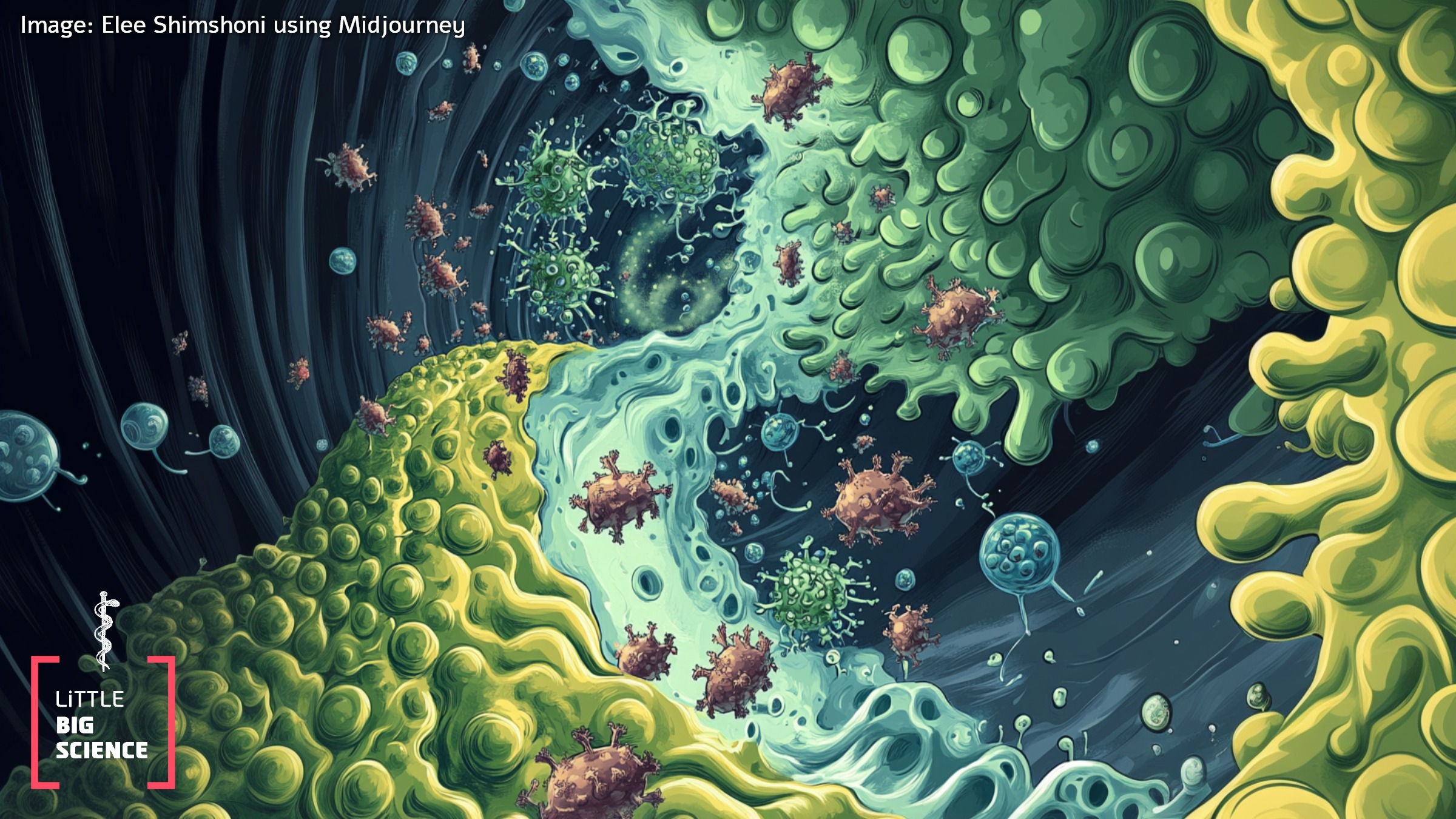
Inflammatory bowel disease, such as Crohn's disease and ulcerative colitis are presumably caused by a failure of the intestine to separate the natural intestinal microbes from the body's immune system. A new Israeli study found that antibiotics damage the ability of intestinal cells to produce a protective mucus layer, which serves as the first line of defense of the barrier between the bacteria and the inside of the body, irrespectively from the change it exerts on the bacteria themselves. The study raises questions regarding the origin of inflammatory bowel diseases and the unexpected effect of antibiotics.
Advertisement
It may surprise some of you to learn that the inside of your digestive tract, from the esophagus and all the way through your intestines, is actually part of the body’s external environment. Much like the skin, which shields the inner organs from uncontrolled exposure to the outer environment, the intestine also contains several defensive layers that separate your inside from the outside. This external environment inside the digestive tube contains the food being digested and what remains of it, along with diverse bacterial communities whose composition greatly influences our health [1–3].
Our body’s first line of defense is mucus produced by specialized intestinal cells called “goblet cells,” named for their resemblance to an elegant wine goblet. The mucus is made of proteins and sugars, forming a gel-like layer over the intestinal cells. Its role is to prevent direct contact between these cells and the bacteria. The next protective layer is the intestinal epithelium itself, followed by a meshwork of proteins and sugars on which these cells sit, known as the basement membrane [4]. Immune cells encounter gut bacteria only if these protective layers are compromised.
The prevailing theory holds that this is precisely the problem in inflammatory bowel diseases (IBD), such as Crohn’s disease and ulcerative colitis: for reasons still unclear, people with IBD lose part of this intestinal barrier between the outside world and the immune system, triggering a chronic inflammatory response against the gut bacteria with which they should coexist peacefully. The result is recurring flare-ups of digestive problems and bleeding, and in many cases irreversible damage to the intestine.
Recent research has found a correlation between antibiotic use and a higher risk of developing IBD. Moreover, the composition of gut bacteria in people with IBD differs from that of healthy individuals [1], and experimental treatments such as fecal transplants aim to “swap” patients’ microbes with those from healthy donors. Because standard doses of antibiotics are thought not to harm human cells, scientists have assumed that if antibiotics contribute to IBD, they do so by disrupting the normal balance of gut bacteria.
A new study from Dr. Shai Bel’s laboratory at Bar-Ilan University took an in-depth look at how antibiotics affect intestinal function—and specifically whether this effect is merely a by-product of altering the gut microbiota [5].
First, the researchers treated mice with different antibiotics and observed that the mucus layer in these mice became thinner, allowing gut bacteria to approach and penetrate the epithelial layer. Since antibiotics are known to change microbial populations, the obvious hypothesis was that this change is what leads to the damage observed in the mucus layer. To test it, the team transplanted bacteria from antibiotic-treated mice into germ-free mice raised in completely sterile conditions. They saw no effect on the mucus layer.
With the idea disproved that antibiotics impair intestinal function only by altering bacteria, the researchers turned to the goblet cells themselves. They found that antibiotics stress these cells’ protein-processing machinery, reducing mucus secretion. In addition, antibiotic treatment worsened inflammatory symptoms in mice already suffering from colitis.
But hope is not lost. A previous study from the same lab showed that supplementing one of the bile acids—which is normally secreted into the small intestine during digestion—helped goblet cells in the large intestine produce more mucus [6] and even protected mice from colitis (inflammation of the large intestine). The researchers therefore demonstrated that the intestine can be “rescued” from the antibiotic-induced erosion of its mucus layer by combining antibiotics with this bile acid.
The current study was conducted in mice, and more evidence is needed to link frequent antibiotic use to IBD development in humans. Nevertheless, the findings raise questions about antibiotics’ broader impact on health. If future human data accumulate, your next antibiotic prescription might come with a companion treatment to keep your goblet cells healthy and mucous.
Hebrew editing: Smadar Raban
English editing: Elee Shimshoni
References:
[1] What can our blood reveal about our gut bacteria?
[2] Article on the oral microbiome
[3] Article on the link between the microbiome and development
[4] Article on damage to the extracellular matrix underlying epithelial cells
[5] The original paper from Shai Bel’s laboratory
[6] Earlier study showing that bile acid can promote mucus secretion







